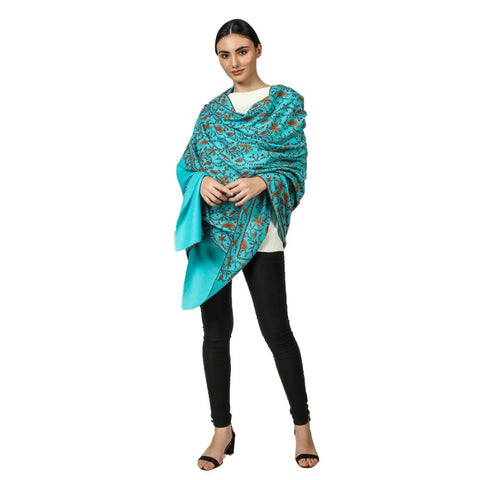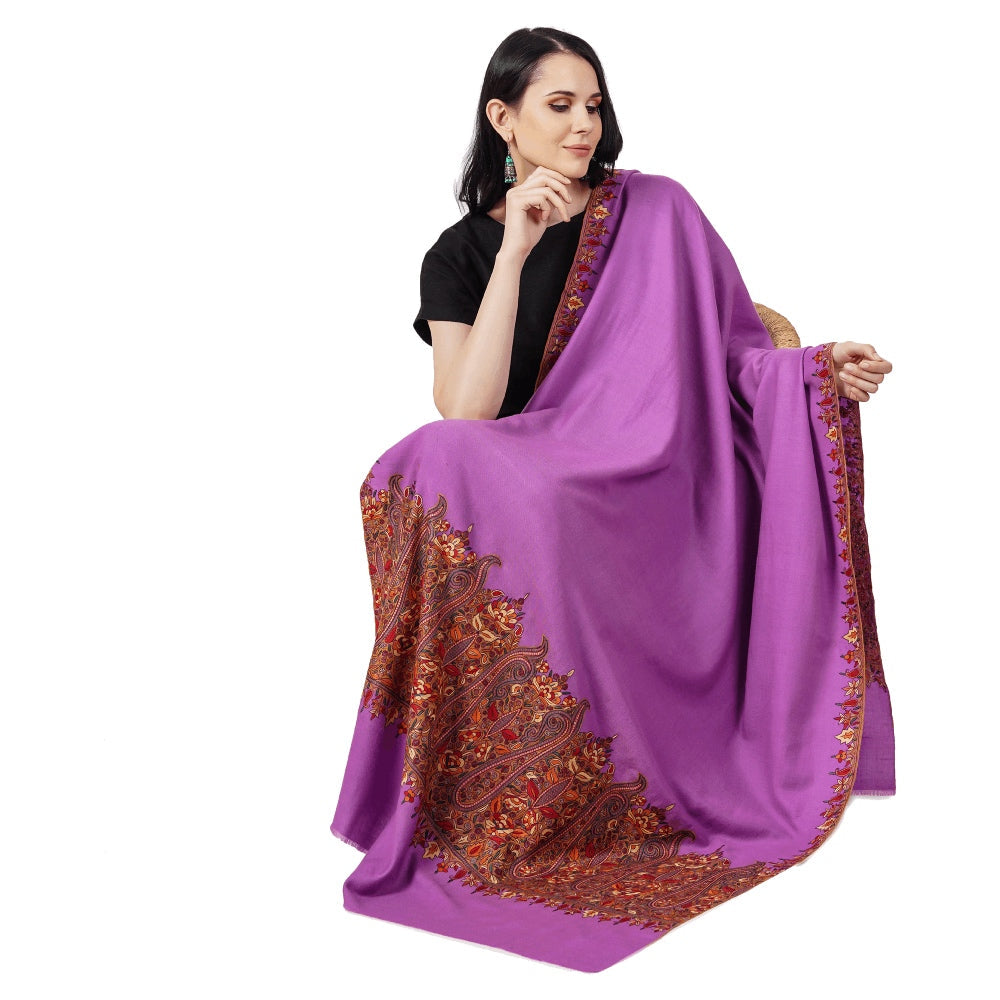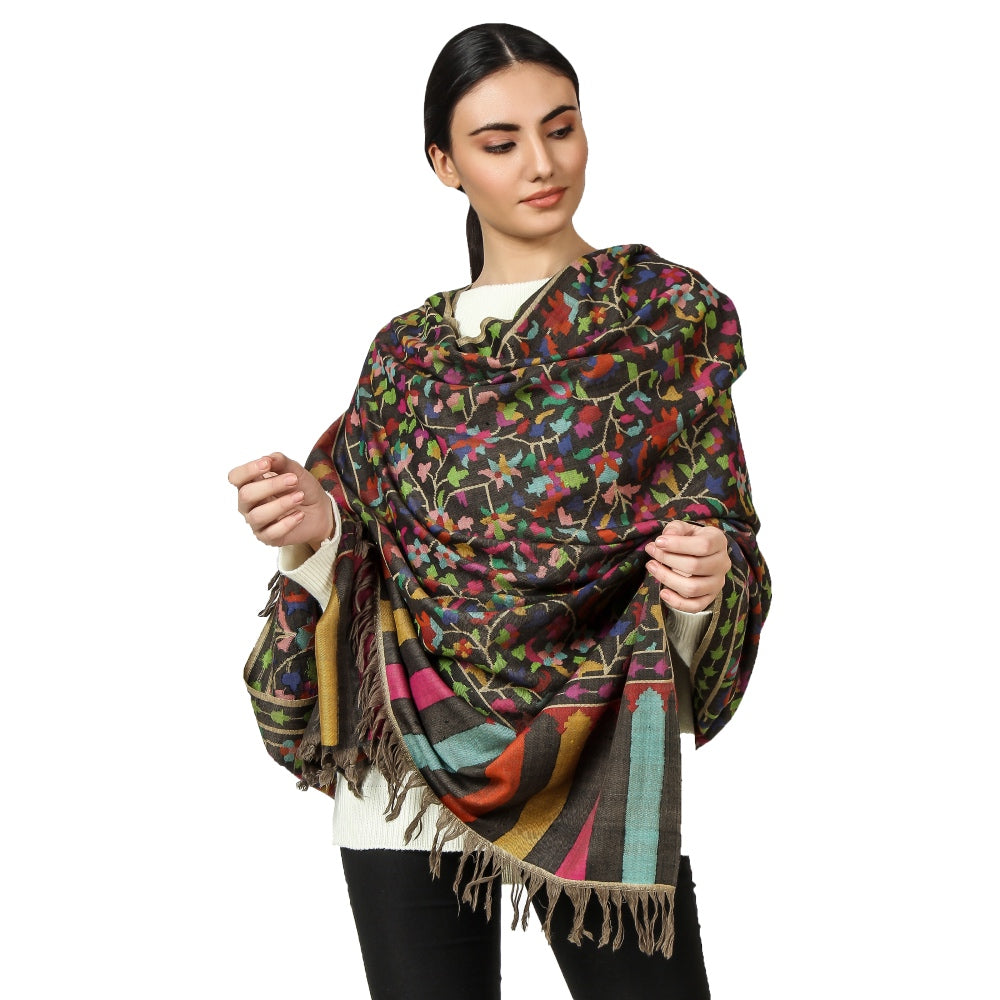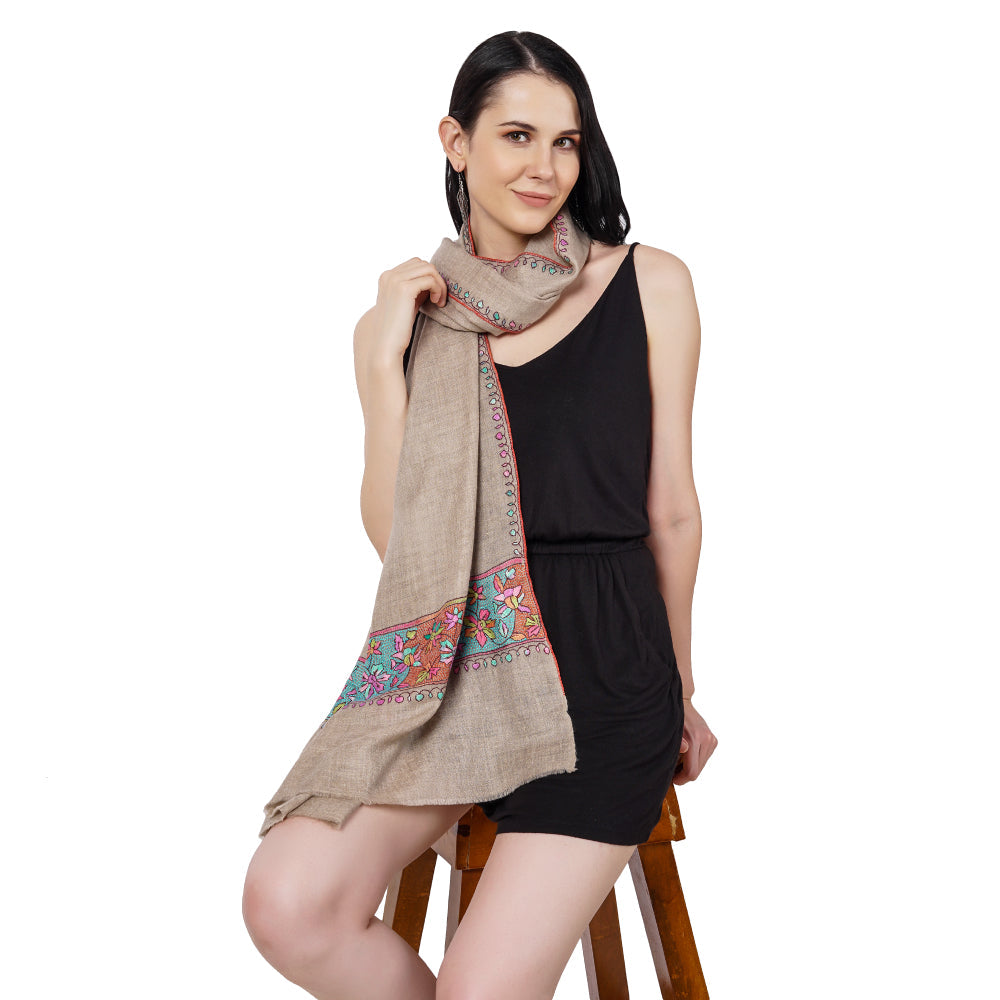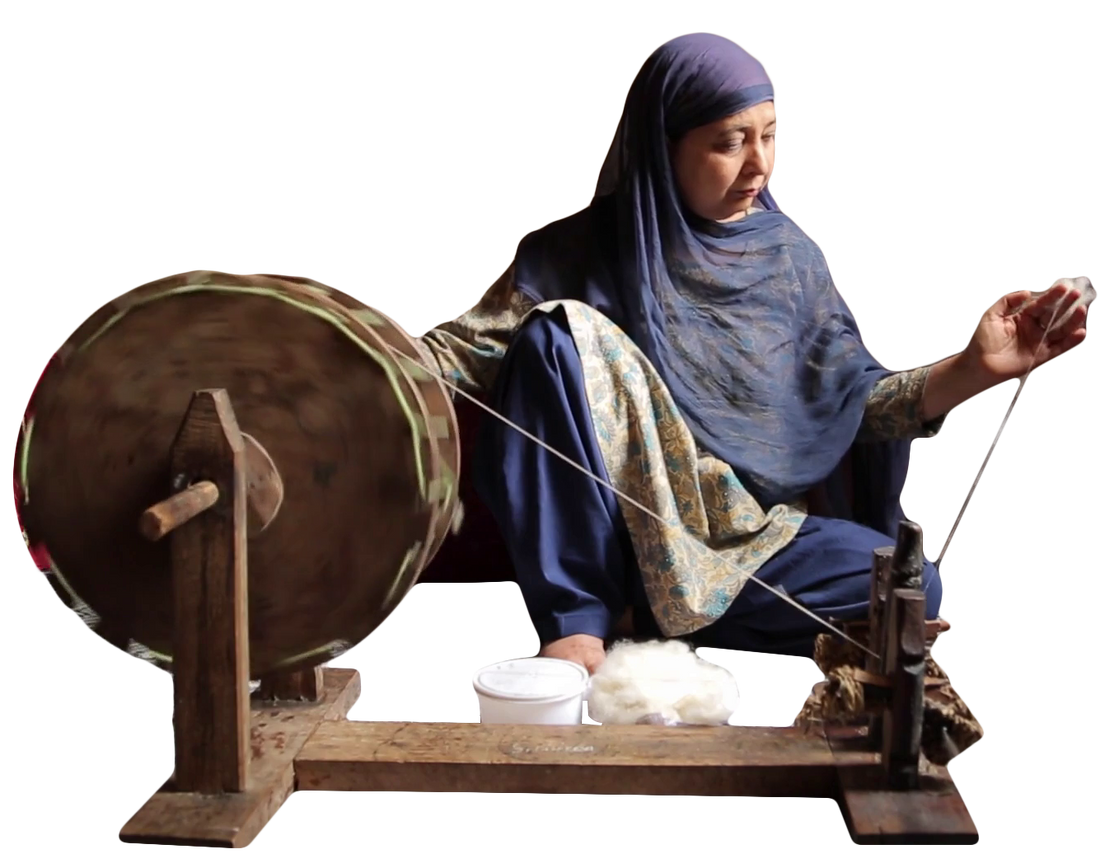
Empowering Women Through GI Pashmina Shawls
Women empowerment is the process of creating an environment where women can make their own choices, exercise their own rights, and take charge of their own lives. It is about providing women with the necessary tools and resources to be able to make informed decisions and to participate fully in social, economic, and political life. Women empowerment is not just about increasing the number of women in positions of power, but also about ensuring that women have equal access to education, healthcare, and economic opportunities.
Importance of Women Empowerment
The importance of women empowerment cannot be overstated. When women are empowered, they are able to contribute to their families, communities, and societies in meaningful ways. They are able to participate fully in economic, social, and political life, and to make a positive impact on the world around them. Empowering women also has a ripple effect, leading to more inclusive and equal societies, stronger economies, and improved living standards for everyone.
The purpose of this blog post is to explore the role of GI Pashmina shawls in women empowerment. Specifically, we will look at how these shawls can be used to promote women empowerment initiatives, and the impact they can have on the lives of women in marginalized communities. Through a case study in Kashmir, we will examine how women empowerment through GI Pashmina shawls can create positive change and promote gender equality.
Pashmina Shawls
What is a Pashmina Shawl
Shawls Pashmina shawls are made from the soft, fine wool of the pashmina goat, which is found in the high-altitude regions of the Himalayas. These shawls are known for their warmth, softness, and luxurious texture, and are highly valued for their quality and beauty. Pashmina shawls can be worn as a fashion accessory or used as a wrap to keep warm in colder climates.
History of Pashmina Shawls

Pashmina shawls have a rich history dating back centuries. They were first made in the Kashmir region of northern India, which was known for its skilled artisans and craftsmanship. The shawls were highly prized by royalty and the wealthy, and were often gifted as a sign of prestige and status. In the 19th century, the popularity of pashmina shawls spread to Europe, where they became a symbol of luxury and elegance.
Also read: The History of Pashmina
Types of Pashmina Shawls

There are several types of pashmina shawls, each with their own unique characteristics. The most common types include:
-
Jamawar - Jamawar shawls are made using a special weaving technique that creates intricate designs and patterns. They are often highly ornamental, with rich colors and intricate embroidery.
-
Kani - Kani shawls are made using a unique needlework technique that involves weaving threads by hand. They are known for their fine detail and intricate patterns, and can take several months to complete.
-
Printed - Printed pashmina shawls are made using a printing technique that allows for a variety of designs and patterns. They are often more affordable than woven shawls, but still retain the softness and warmth of pashmina wool.
Importance of Pashmina Shawls
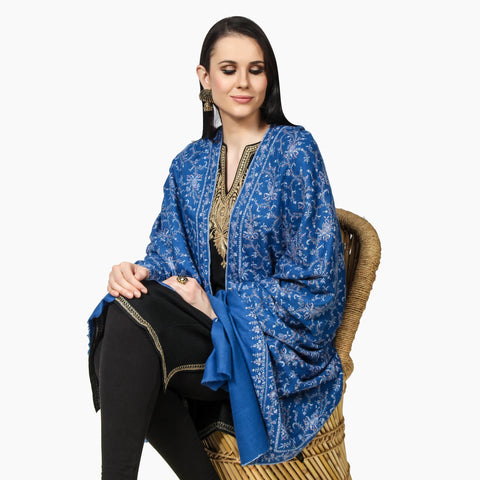
Pashmina shawls are not only valued for their beauty and quality, but also for their role in supporting the livelihoods of artisans in the Kashmir region. The production of pashmina shawls is a labor-intensive process that involves several stages of cleaning, spinning, and weaving. By purchasing pashmina shawls, consumers are supporting the local economy and helping to preserve traditional craft techniques. Additionally, the demand for pashmina shawls has helped to raise awareness about the importance of protecting the endangered pashmina goat, which is a valuable source of wool for the shawls.
GI Pashmina Shawls
Definition of GI Pashmina Shawls
GI stands for Geographical Indication, which is a sign used on products that have a specific geographical origin and possess qualities, reputation, or other characteristics that are linked to that origin. GI Pashmina shawls are shawls made from pashmina wool that is sourced from the Kashmir region of northern India, and which have been certified by the government of India as having a unique geographical origin and special qualities.
Also read: What is GI Pashmina
Importance of GI Pashmina Shawls
GI Pashmina shawls are important because they help to protect the traditional craft of pashmina shawl-making and promote the economic development of the Kashmir region. The certification of these shawls ensures that they are made using authentic, high-quality pashmina wool and traditional weaving techniques, and that they are not produced using cheaper, synthetic materials. This helps to maintain the integrity and authenticity of the craft, and ensures that artisans are paid fairly for their work.
Also read: Where do Pashmina Shawls come from?
Benefits of Buying GI Pashmina Shawls
There are several benefits to buying GI Pashmina shawls. First, consumers can be assured that they are purchasing a high-quality, authentic product that has been made using traditional craft techniques. Second, buying these shawls supports the local economy and helps to preserve traditional craft skills, which in turn helps to promote sustainable economic development in the Kashmir region. Third, the purchase of GI Pashmina shawls can have a positive impact on women's empowerment initiatives in the region, as many of the artisans who produce these shawls are women who have gained economic independence through their work. Finally, buying GI Pashmina shawls can be a way of supporting sustainable and ethical fashion, as these shawls are made using natural, renewable materials and traditional craft techniques that are environmentally friendly.
Women Empowerment through GI Pashmina Shawls
Women Empowerment Initiatives
Women empowerment initiatives in the Kashmir region of India have focused on promoting economic opportunities for women through traditional craft skills such as pashmina shawl-making. Many of these initiatives have been supported by government agencies and NGOs, and have provided women with training, resources, and access to markets for their products.
Importance of Women Empowerment through GI Pashmina Shawls
Women empowerment through GI Pashmina shawls is important because it provides women with economic independence and empowers them to take control of their own lives. By earning an income through their craft skills, women can support themselves and their families, gain a sense of self-worth and dignity, and become active participants in their communities. In addition, women's economic empowerment can have broader social and economic benefits, such as improved health, education, and social status for themselves and their families.
Benefits of Women Empowerment through GI Pashmina Shawls
There are several benefits of women's empowerment through GI Pashmina shawls. First, it provides women with economic opportunities and helps to promote gender equality in the Kashmir region. Second, it preserves traditional craft skills and promotes sustainable economic development in the region. Third, it helps to protect the cultural heritage of the Kashmir region and promote the global recognition of the unique qualities of pashmina shawls. Finally, it provides consumers with a way to support women's empowerment and sustainable fashion through their purchasing choices. By choosing to buy GI Pashmina shawls, consumers can support a valuable and meaningful cause while also enjoying the beauty and quality of a unique and luxurious product.
Also read: What is GI Pashmina?
Case Study:
Women Empowerment through GI Pashmina Shawls in Kashmir
Background Information about Kashmir
Kashmir is a region in northern India that has a long history of conflict and political instability. The region is known for its natural beauty and rich cultural heritage, including the traditional craft of pashmina shawl-making. However, the ongoing conflict in the region has made it difficult for artisans to earn a living from their craft, and has had a disproportionate impact on women, who often have limited access to education and economic opportunities.
Women Empowerment Initiatives in Kashmir through GI Pashmina Shawls
Despite the challenges facing the region, there have been several successful women empowerment initiatives in Kashmir that have focused on promoting economic opportunities for women through pashmina shawl-making. One such initiative is the Pashmina Weavers Cooperative Society, which was established in 1979 and has since provided training, resources, and access to markets for women artisans in the region. The cooperative has been instrumental in promoting the production of GI Pashmina shawls, and has helped to ensure that women are paid fair wages for their work.
Impact of Women Empowerment through GI Pashmina Shawls in Kashmir
The impact of women's empowerment through GI Pashmina shawls in Kashmir has been significant. Women artisans who have participated in the Pashmina Weavers Cooperative Society and other similar initiatives have gained economic independence and the ability to support themselves and their families. They have also gained a sense of self-worth and dignity, and have become active participants in their communities. In addition, the production of GI Pashmina shawls has helped to preserve traditional craft skills and promote sustainable economic development in the region. It has also helped to promote gender equality and protect the cultural heritage of the Kashmir region. Overall, the impact of women's empowerment through GI Pashmina shawls in Kashmir has been a positive one, both for the women involved and for the wider community.
Conclusion
In this blog post, we have discussed the concept of women empowerment and its importance, as well as the history and types of pashmina shawls. We have also explored the concept of GI Pashmina shawls and their importance, and how they can be used as a tool for women's empowerment. We have provided a case study of women's empowerment through GI Pashmina shawls in Kashmir and the impact it has had on the community.
Final Thoughts on Women Empowerment through GI Pashmina Shawls
Women's empowerment through GI Pashmina shawls is a powerful and meaningful way to support gender equality and sustainable fashion. By choosing to buy GI Pashmina shawls, consumers can support women's economic empowerment, promote sustainable economic development, and help to preserve traditional craft skills and cultural heritage.
We encourage readers to support women's empowerment through their purchasing choices. By choosing to buy GI Pashmina shawls from women artisans, consumers can help to support economic independence for women and promote gender equality. Additionally, we encourage readers to support women's empowerment initiatives in their own communities and around the world, and to advocate for policies and programs that promote gender equality and women's rights. By working together, we can create a more just and equitable world for all.


